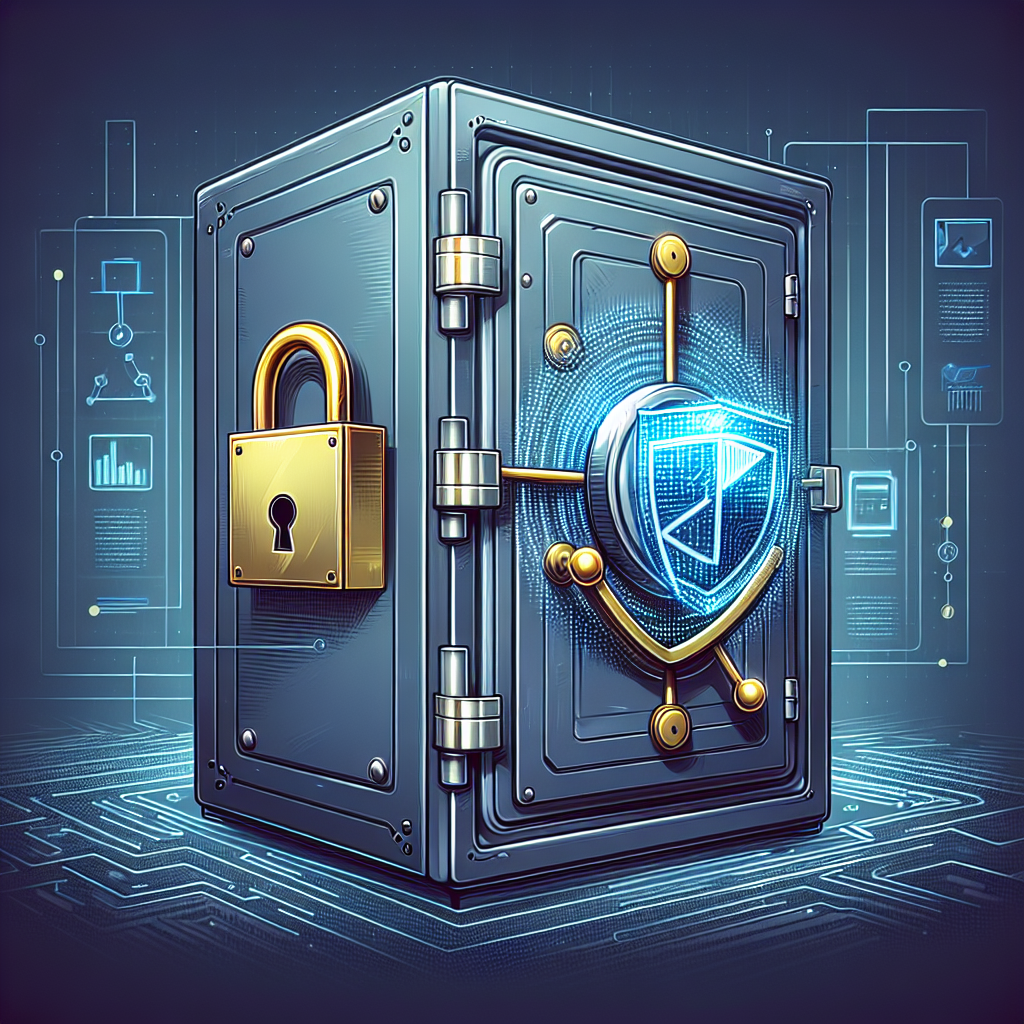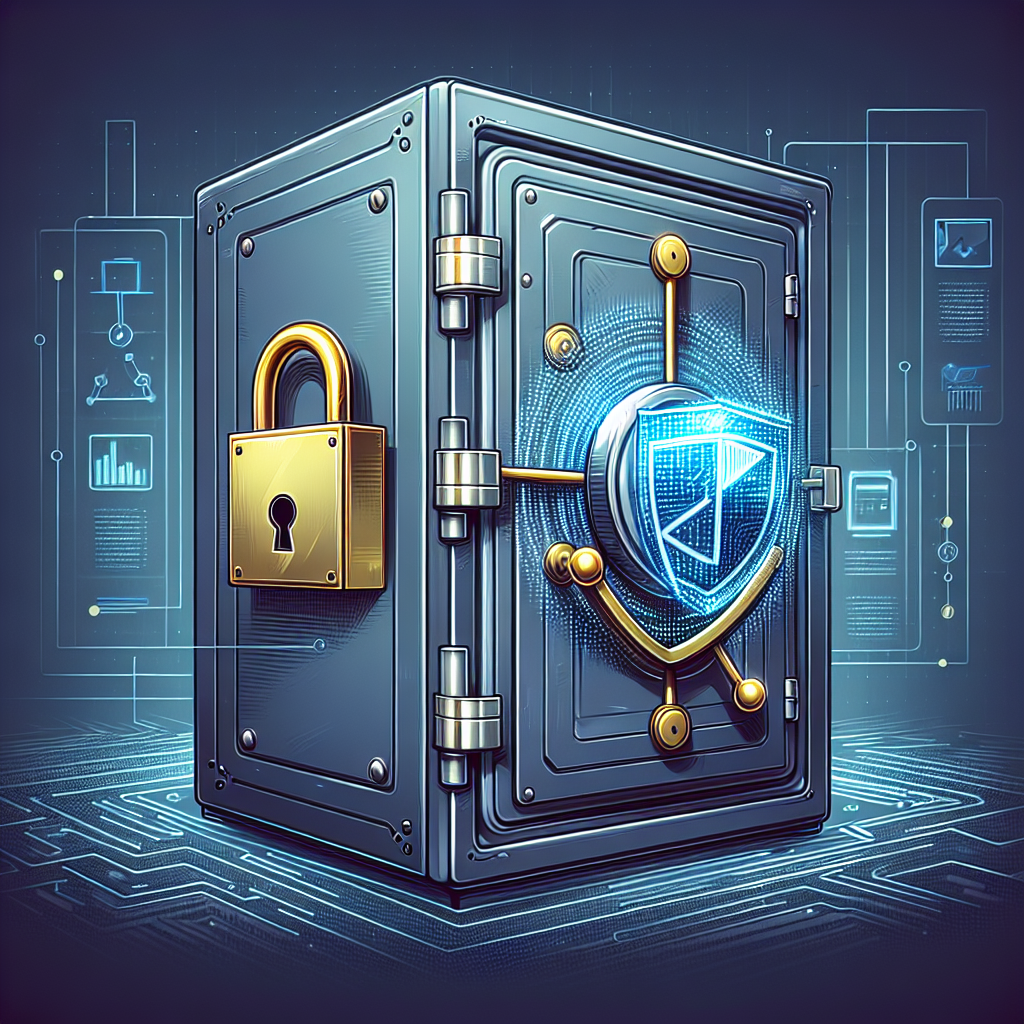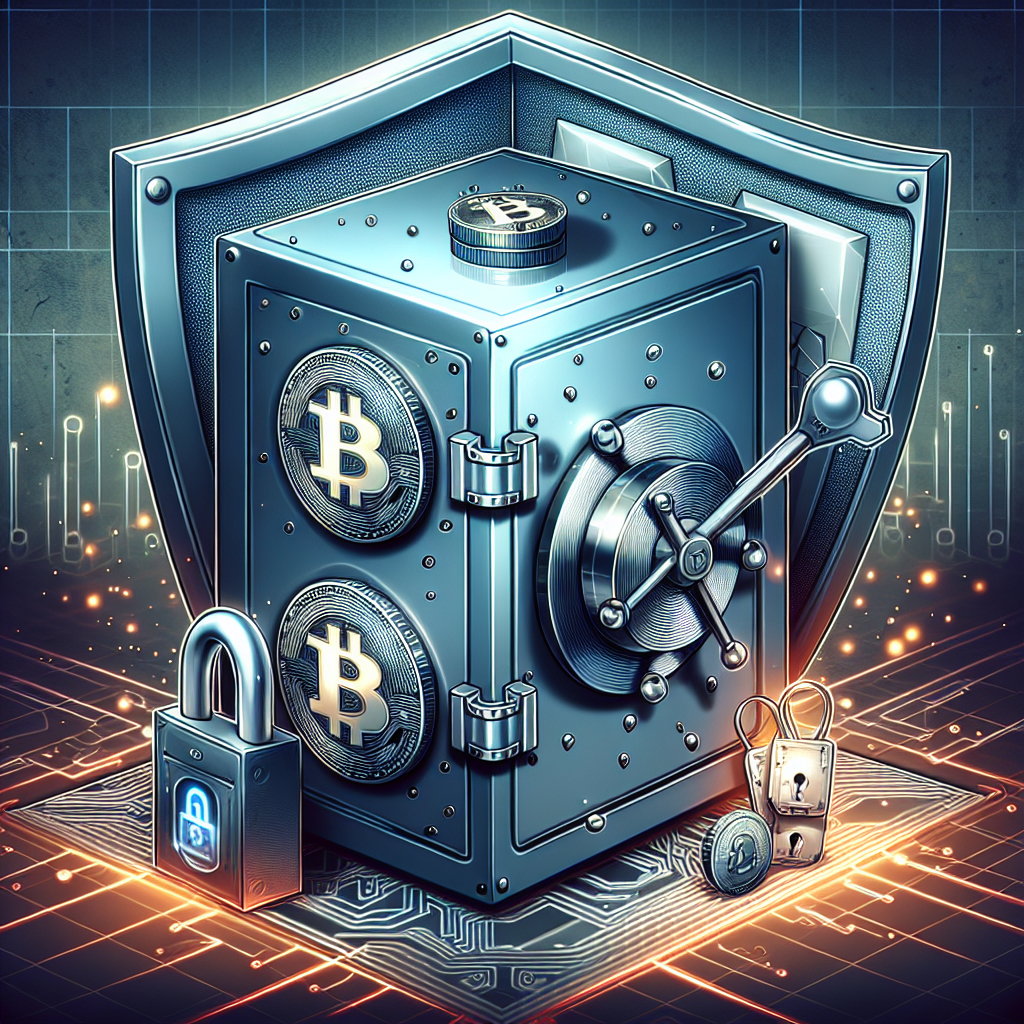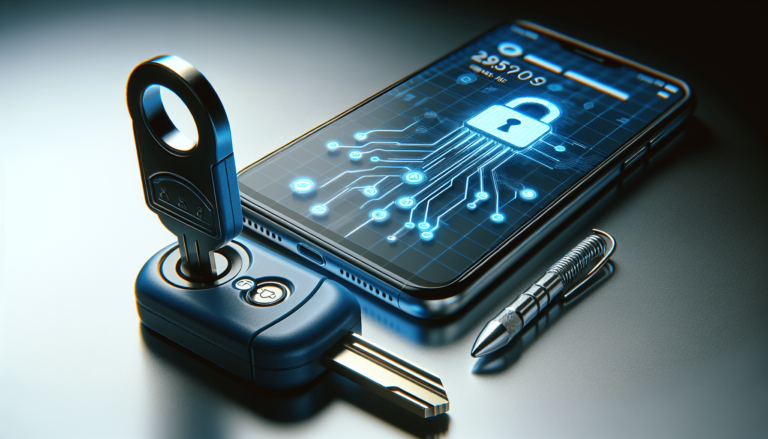How To Keep Your Cryptocurrency Investments Safe And Secure

In the rapidly evolving world of cryptocurrencies, it’s essential to prioritize the safety and security of your investments. As the value of digital assets continues to soar, so do the risks associated with them. To ensure the protection of your cryptocurrency investments, you must educate yourself on best practices, implement robust security measures, and remain vigilant against potential threats. By following these guidelines, you can navigate the world of cryptocurrency with confidence and peace of mind.
Choosing a Reliable Cryptocurrency Exchange
When it comes to investing in cryptocurrencies, choosing a reliable cryptocurrency exchange is crucial for the safety and security of your investments. Here are a few important factors to consider when researching and selecting an exchange:
Researching the Exchange’s Reputation
Before entrusting your hard-earned money to a cryptocurrency exchange, it is essential to research and assess its reputation. Look for reviews and feedback from other users to get a sense of the exchange’s reliability and trustworthiness. You can also check online forums and social media platforms to gather more information about the exchange’s track record and customer satisfaction.
Checking for Licensing and Regulation
When evaluating a cryptocurrency exchange, it is important to verify whether it is licensed and regulated by the appropriate authorities. Licensed exchanges are required to comply with specific regulations and procedures, which can provide an added layer of security for your investments. Make sure to check if the exchange operates in accordance with know-your-customer (KYC) and anti-money laundering (AML) regulations to prevent fraudulent activities.
Assessing Security Measures
A reliable cryptocurrency exchange should prioritize the security of its users’ funds. Look for exchanges that implement robust security measures, such as two-factor authentication (2FA), encryption, and secure storage of funds. It is also advisable to choose exchanges that have a demonstrated history of successfully mitigating security breaches and promptly addressing any potential vulnerabilities.
Creating a Strong and Secure Wallet
In addition to choosing a reliable cryptocurrency exchange, it is crucial to create a strong and secure wallet to store your digital assets. Here are a few strategies to consider:
Using Hardware Wallets
Hardware wallets are physical devices specifically designed to securely store cryptocurrencies. These wallets keep your private keys offline, making them less susceptible to hacking and cyberattacks. By storing your cryptocurrencies offline, you significantly reduce the risk of unauthorized access or theft. Popular hardware wallet brands include Trezor, Ledger, and KeepKey.
Setting Up Multi-Signature Wallets
A multi-signature wallet requires multiple cryptographic signatures to authorize transactions. This added layer of security ensures that even if one of the private keys is compromised, the funds will remain secure. Multi-signature wallets are especially useful for businesses or high net worth individuals who need to secure significant amounts of cryptocurrency.
Implementing Cold Storage
Cold storage refers to storing your cryptocurrencies offline, further reducing the risk of online threats and hacking attempts. Cold storage solutions can include paper wallets or offline hardware devices. By keeping your private keys offline, you greatly reduce the chances of falling victim to cyberattacks or hacking attempts.

Enabling Two-Factor Authentication (2FA)
Two-factor authentication (2FA) is a security measure that adds an extra layer of protection to your accounts. It requires users to provide two independent forms of identification to access their accounts, typically a password and a unique code generated by an authenticator app. Here’s what you need to know about enabling and using 2FA:
Understanding 2FA
2FA provides an additional level of security by requiring a second form of authentication beyond a simple password. This can include a unique code sent to your mobile device, biometric data (such as a fingerprint), or a time-based one-time password (TOTP) generated by an authenticator app. By enabling 2FA, even if someone manages to obtain your password, they will still be unable to access your account without the second authentication step.
Choosing an Authentication App
To enable 2FA, you will need to choose an authenticator app. Popular options include Google Authenticator, Authy, and Microsoft Authenticator. These apps generate unique codes that you need to input along with your password when logging in to your cryptocurrency exchange or wallet. Make sure to choose a reputable and widely supported app to ensure compatibility with your chosen platform.
Setting Up 2FA on Exchange and Wallets
Once you have chosen an authenticator app, follow the instructions provided by your cryptocurrency exchange or wallet provider to enable 2FA. Typically, this involves scanning a QR code with the authenticator app and then entering the verification code generated by the app. Remember to securely store a backup of your QR codes or secret keys in case you need to set up the authenticator app on a new device.
Being Cautious with Online Communications
When it comes to the safety and security of your cryptocurrency investments, it is crucial to be cautious and vigilant when it comes to online communications. Here are some important steps to take to protect yourself from phishing attacks and other online threats:
Avoiding Phishing Attacks
Phishing attacks are a common method used by hackers to trick individuals into revealing sensitive information, such as passwords or private keys. Be wary of any unsolicited emails, messages, or links asking for your login credentials or personal details. Legitimate cryptocurrency exchanges and wallet providers will never ask you to disclose your passwords or private keys via email or any other communication channel.
Verifying Emails and Websites
Before clicking on any links or downloading any attachments from emails related to your cryptocurrency investments, always verify the authenticity of the sender and the website. Check the email address, domain, and spelling carefully to ensure that it matches the official contact details of the exchange or wallet provider. It is also advisable to manually enter the website address in your browser instead of clicking on links in emails or messages.
Securing Communication Channels
To ensure the privacy and security of your communications related to cryptocurrency investments, consider using encrypted messaging platforms or secure email providers. End-to-end encryption can prevent unauthorized access to your conversations, minimizing the risk of sensitive information falling into the wrong hands. Additionally, avoid discussing sensitive information in public forums or chat groups, as it increases the likelihood of being targeted by malicious actors.

Keeping Software and Devices Updated
Keeping your software and devices up to date is a vital aspect of maintaining the security of your cryptocurrency investments. By regularly installing security patches, updating wallet software, and using trusted antivirus and firewall programs, you can minimize the risk of falling victim to cyberattacks. Here’s what you need to know:
Installing Latest Security Patches
Software developers frequently release security patches and updates to address vulnerabilities and protect against emerging threats. It is important to regularly install these updates on your operating system, web browser, and other software applications you use for cryptocurrency-related activities. Enable automatic updates whenever possible to ensure that you are always running the most secure version of the software.
Updating Wallet Software Regularly
Wallet software can also be subject to security vulnerabilities, so it is important to keep your wallet software up to date. Check for updates on the official website or within the wallet application itself and ensure that you are using the latest version. Additionally, make sure to download wallet software only from trusted sources to avoid the risk of downloading compromised or malicious software.
Using Trusted Antivirus and Firewall
To protect your devices from malware, viruses, and other cyber threats, it is crucial to use trusted antivirus and firewall programs. These security tools can help detect and neutralize potential threats, preventing unauthorized access to your computer and sensitive information. Make sure to regularly update and scan your devices with reputable antivirus software to ensure maximum protection.
Practicing Safe Online Habits
In addition to following the necessary security measures for your devices and software, practicing safe online habits can significantly reduce the risk of falling victim to cyberattacks. Here are some essential practices to keep in mind:
Using Strong and Unique Passwords
Creating strong and unique passwords is one of the simplest yet most effective ways to protect your cryptocurrency investments. Use a combination of uppercase and lowercase letters, numbers, and special characters when creating passwords. Avoid using easily guessable information such as birthdays or common dictionary words. Furthermore, ensure that each of your online accounts has a unique password to prevent unauthorized access.
Avoiding Public Wi-Fi for Transactions
Public Wi-Fi networks are often unsecured and can be easily compromised by hackers. Avoid conducting cryptocurrency transactions or accessing your exchange or wallet accounts using public Wi-Fi networks. Instead, use a secure and private internet connection, such as your home network or a trusted virtual private network (VPN), to minimize the risk of interception or unauthorized access to your information.
Being Wary of Suspicious Links
Be cautious when clicking on links, especially those shared through emails, social media, or online forums. Hackers often use deceptive techniques, such as disguising malicious links as legitimate ones, to trick users into revealing sensitive information. Check the URL carefully to ensure that it matches the official website address of the cryptocurrency exchange or wallet provider before entering any personal or login details.
Securing Offline Storage and Backups
While online security measures are essential, it is equally important to secure offline storage and backups of your cryptocurrency investments. By keeping physical backups and using encrypted external hard drives, you can safeguard your digital assets from potential digital threats. Here are a few strategies to consider:
Using Encrypted External Hard Drives
By using encrypted external hard drives, you can securely store and back up your cryptocurrency wallet files and private keys. Ensure that the external hard drives you choose have built-in encryption features and password protection to prevent unauthorized access to your backup files. Keep these drives in a secure location, such as a safe or a lockbox, to minimize the risk of physical theft.
Storing Paper Wallets Securely
Paper wallets, which consist of printed QR codes representing your wallet addresses and private keys, provide an additional offline storage option for your cryptocurrency investments. Store your paper wallets in a secure and physically protected location, such as a safe or a sealed envelope. Make sure to keep multiple copies in different secure locations to avoid the risk of losing your access to your cryptocurrencies.
Creating Multiple Backup Locations
Backing up your cryptocurrency investments is crucial to ensure that you can recover your funds in case of loss, theft, or damage to your primary storage. Create multiple backup copies, both digitally and physically, and store them in different secure locations. This redundancy will protect you in case one backup becomes inaccessible or compromised.
Educating Yourself about Security Risks
To effectively protect your cryptocurrency investments, it is essential to educate yourself about the various security risks and threats that exist in the cryptocurrency ecosystem. By understanding phishing attacks, scams, and potential vulnerabilities, you can make informed decisions and take proactive measures to safeguard your digital assets. Here’s what you need to know:
Understanding Phishing and Social Engineering
Phishing and social engineering are tactics used by cybercriminals to trick individuals into revealing sensitive information. Phishing attacks often involve fake emails, websites, or messages that imitate legitimate platforms or organizations. Educate yourself about the common signs of phishing emails or websites to avoid falling victim to these scams. Be skeptical of any requests for sensitive information and always verify the authenticity of communications.
Knowing Common Scams and Ponzi Schemes
The cryptocurrency industry is not immune to scams and fraudulent schemes. Familiarize yourself with the common types of cryptocurrency scams, such as pyramid schemes, initial coin offering (ICO) scams, and fake investment opportunities. Conduct thorough research before investing in any cryptocurrency project and be cautious of promises of unrealistically high returns. If something seems too good to be true, it likely is.
Staying Updated on Security News
The cryptocurrency landscape is constantly evolving, with new security vulnerabilities and threats emerging regularly. Stay informed about the latest security news, updates, and best practices by regularly following reputable sources and industry experts. Join online communities, forums, or social media groups dedicated to cryptocurrency security to gain insights from experienced individuals and share knowledge with fellow investors.
Diversifying Your Cryptocurrency Portfolio
Diversification is a fundamental principle of investing, and it is equally applicable to cryptocurrency investments. Spreading your investments across different cryptocurrencies and blockchain platforms can help mitigate potential risks and minimize the impact of market fluctuations. Here’s why diversification is important and how you can achieve it:
Spreading Investments Across Different Cryptocurrencies
By diversifying your cryptocurrency portfolio, you spread the risk associated with individual cryptocurrencies. Investing in a variety of cryptocurrencies with different use cases, market capitalizations, and development teams can help protect your investments from the volatility and uncertainty of specific cryptocurrencies. Conduct thorough research and consider investing in a mix of established cryptocurrencies and promising projects to build a well-diversified portfolio.
Considering Different Blockchain Platforms
In addition to diversifying across cryptocurrencies, consider investing in projects built on different blockchain platforms. Each blockchain has its strengths and weaknesses, and investing solely in cryptocurrencies on a single platform exposes you to the risks associated with that platform. By diversifying across multiple platforms, you can reduce the impact of potential vulnerabilities or limitations of a specific blockchain.
Mitigating Single Point of Failure
Diversification is a strategy employed by investors to mitigate the risk associated with having a single point of failure. This principle applies to cryptocurrency investments as well. By spreading your investments across different cryptocurrencies and blockchain platforms, you reduce the risk of losing all your investments in case any single cryptocurrency or platform experiences a catastrophic failure. Diversification provides a safety net and helps ensure the longevity and stability of your cryptocurrency portfolio.
Reviewing and Monitoring Your Investments
Regularly reviewing and monitoring your cryptocurrency investments is essential for maintaining the security and profitability of your portfolio. By staying vigilant and implementing security audit practices, you can quickly detect any suspicious activity or potential vulnerabilities. Here’s what you should do:
Regularly Checking Account Activity
Regularly monitor your cryptocurrency exchange and wallet accounts to review your transaction history and account activity. Look for any unauthorized transactions or suspicious login attempts. If you notice any unusual activity, immediately report it to the exchange or wallet provider and take appropriate action to secure your funds.
Setting Price Alerts for Significant Changes
Cryptocurrency prices can be highly volatile, and significant price fluctuations can impact the value of your investments. Set price alerts for your cryptocurrencies to be notified of significant price changes. This proactive approach allows you to make informed decisions and take necessary actions, such as buying or selling, to protect your investments or take advantage of favorable market conditions.
Implementing Security Audit Practices
Implementing regular security audits helps you identify and address any potential vulnerabilities in your cryptocurrency investments. Periodically review your security measures, including password strength, 2FA settings, and software updates. Consider conducting security audits using reputable third-party tools and experts to gain an independent assessment of your risk exposure and identify any areas for improvement.
By following these comprehensive guidelines and adopting a security-first mindset, you can effectively protect and secure your cryptocurrency investments. Remember, investing in cryptocurrencies carries inherent risks, and it is crucial to stay informed, research thoroughly, and implement robust security practices to maximize the safety and profitability of your investments.







